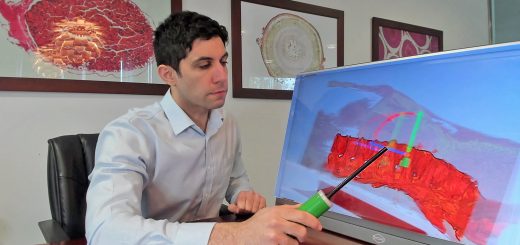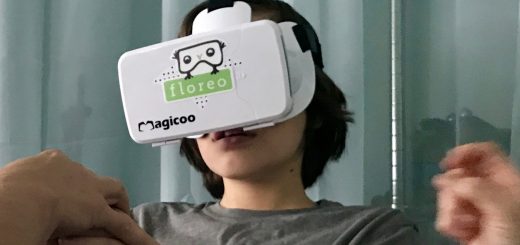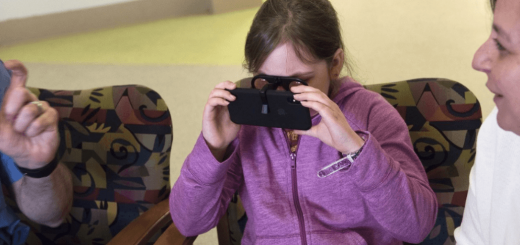Vision and purpose expands Osso VR’s surgical residency programs
Published · Updated
Meet Dr. Krummel, an early visionary and advocate for VR surgical training.

By Kristi Hansen Onkka —
When Dr. Thomas M. Krummel trained as a general surgeon, and then as a pediatric surgeon, he trained using the old way of learning surgery, which essentially involved watching it done, doing it and then teaching it.
Krummel made his way up the ladder and eventually became the chair of Penn State University’s Department of Surgery in 1994. It was obvious to him that surgery training could not continue in the way it had for some time. The old way was too expensive and carried too much liability.
So, Krummel did something about it. He, along with two colleagues in anesthesia and nursing, created one of the first simulation centers in the country at Penn State.
In 1998, Stanford University became interested in this kind of simulation-based training. Krummel’s background in surgical robotics played into this as well. He moved to Stanford in part to be closer to Silicon Valley, where much of the technology in which he was interested in was being pioneered. He and his colleagues built a simulation laboratory there and crafted robotics programs.
Two years ago, Krummel quit doing surgery so he could focus on early-stage medical devices and technology on a full-time basis. One of these technologies is Osso VR, a leading virtual-reality surgical training platform used by medical professionals of all skill levels and abilities. The platform is hand-based, allowing users to train on the latest technology while having performance measured by specialized analytical software.,
Developing Osso VR
Krummel worked with Dr. Justin Barad to develop Osso VR, at first as a cheerleader of sorts, helping with fundraising and anywhere the team needed him. Then, he was involved in the educational quantification, which deals with converting levels of education into comparable numbers and figures.
Osso VR allows for what Krummel refers to as “in-time learning” or “rehearsal.” It gives users the opportunity to preview the procedure they will be performing, without the risk of operating on an actual human patient or on a complicated rig that requires setup and takedown just to use. Krummel compares it to going to play tennis and hitting the ball around before the actual match. It’s like a warmup, letting the surgeon know what to expect when the actual procedure comes along. With applications like Osso VR, it is becoming increasingly normative to partake in this kind of “rehearsal.”
According to Krummel, the centers where the surgeons train should be close to operating rooms so that people actually use them. It’s better to have it near the operating room rather than, for example, down the street in a shopping center.
This all ties into what Krummel saw as the future of surgical training in a paper he wrote almost twenty years ago. He envisioned surgeons going over the procedure the night before and then carrying it out the day of with robotic assistance. He believes that performing surgery with this kind of assistance is better than performing it without.
Krummel’s work brings together doctors, engineers and business people in order to help understand the unsolved problems in the world of medicine, and to figure out how to craft potential solutions to these problems. Osso VR is just one of these solutions.
A New Chapter for Osso VR
Recently, Osso VR announced that its validated virtual reality surgical training platform has developed partnerships with top U.S. residency programs looking to increase access to immersive, hands-on training opportunities for surgeons. The Vanderbilt University School of Medicine’s orthopaedic residency program joins 8 total programs deploying the virtual reality training solution. This expansion into surgical residency programs comes on the heels of the company’s success working with medical device companies looking to improve training, encourage safe use, and increase adoption. Other orthopedic residency programs using Osso VR include Long Island Jewish Medical Center, Columbia University, David Geffen School of Medicine at UCLA, Harvard Medical School and Hospital for Special Surgery.
About Osso VR
Osso VR is an award-winning, validated surgical training platform designed for surgeons, hospital staff, and sales teams of all skill levels. The platform offers highly realistic, hand-based interactions in an immersive training environment for cutting edge procedures and devices.
Lead by orthopedic surgeon, Dr. Justin Barad, the Osso team has a deep clinical understanding, medical device industry expertise, and VR development background. Osso VR has a results-driven approach, allowing teams and individuals to not only practice procedures, but to objectively measure their performance through their proprietary analytics platform and dashboards. To learn more, visit www.ossovr.com.





What do you think?
You are the first to add a thought